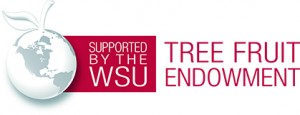
- This event has passed.
Little Cherry Disease Pesticide Use Study
October 23, 2024 @ 1:00 pm - 2:00 pm
Washington State University Extension, with help from the Washington State Department of Agriculture, would like your help in researching changes in pesticide use in sweet cherries that occurred in response to the Little Cherry Disease epidemic.
Here, we refer to Little Cherry Disease (LCD) generally to describe the symptoms caused by three different pathogens Little Cherry Virus 1, Little Cherry Virus 2 (LChV-1, LChV-2), and Candidatus Phytoplasma pruni (X-disease phytoplasma / Western X). Little Cherry Virus 2 is transmitted by mealybugs, X-disease phytoplasma is transmitted by leafhoppers, and Little Cherry Virus 1 vectors are unknown. X-disease phytoplasma is currently the most prevalent of the three pathogens. We would like to document how pesticide use in cherries changed in response to and continues to adapt in managing this disease and its hosts. Even if you are not working in orchards impacted by these pathogens, your input still matters to help us measure against what unaffected orchards do. This information may also be used by the WSDA to help ensure access to the pesticides that are needed to continue managing pest issues in Washington sweet cherries. Changes in pesticide use will also be helpful in documenting the impacts of these diseases for groups asking for government support.
Information collected by USDA NASS and WSDA surveys does not allow us to distinguish between areas that have been affected by LCD or not. Similarly, we cannot tell what pesticides are being applied after harvest. The information gathered here will help us make those distinctions to better answer these questions. The information gathered from this study may be used by WSDA to help them continue to advocate for fair and reasonable regulations handed down by the EPA. For example, the WSDA uses this information to better inform EPA about what is happening on the ground with crop production. Without state-level data, the EPA makes the broadest assumption that all pesticide labeled for specific crops are applied at the maximum rate and number of times to all crop acres. By demonstrating that pesticide usage does not follow these assumptions, we can advocate for less stringent regulations on pesticide use.
We would like to host two focus groups to discuss pesticide usage in sweet cherries. These meetings will be approximately an hour long.
Participation is voluntary and all information provided will remain anonymous. You are not required to bring or provide spray records but be able to speak knowledgeably on the use of pesticides in 2024 for orchards you are responsible for.
If you would like to participate in this study, please rsvp to Chris or Corina.
Christopher McCullough | Pesticide usage and stewardship scientist | Natural Resources and Agricultural Sciences | Washington State Department of Agriculture | Cell: (564) 669-3809 | Email: Christopher.Mccullough@agr.wa.gov
Corina Serban | Tree Fruit Extension Educator –Little Cherry Disease Information and Technology Transfer | Washington State University | Cell: (509) 470-1169 | Email: corina.serban@wsu.edu
